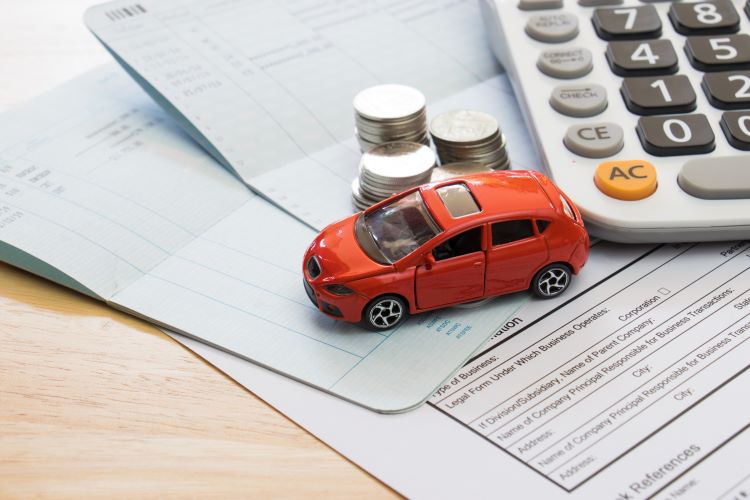Finding Repossessed Car Deals in Ireland — 2025 Guide
Hunting for a late-model car at a reduced price in Ireland? This guide outlines where repossessed vehicles are likely to show up in 2025 — from auctions and lenders to credit unions and online listings — and what buyers should check, compare and prepare to make informed, lower‑risk choices.

Why repossessed cars are a distinct market in 2025 - Repossessed vehicles in Ireland are generally returned to lenders (banks, credit unions and finance firms) when borrowers default. Lenders then dispose of these cars via direct sales, dealer partners or through public and private auctions. - The mix of channels remains significant in 2025: traditional in‑person auctions, specialist auction houses working for lenders, dealer-managed disposals, and an increasing share appearing on online aggregated listings. Each route has different access, inspection and purchase conditions.
Where repossessed cars commonly come from - Banks and finance companies: The main holders of repossessed inventory. They may publish disposal lists on their websites or appoint auction houses and dealers to sell vehicles for them. - Credit unions: Smaller numbers of repossessed vehicles can surface through credit unions, often posted on their disposal pages or sold via local auction partners. - Dealerships and auction houses acting as intermediaries: Lenders frequently rely on specialist auction houses or partner dealerships to appraise, stage and sell repossessed cars. - Online aggregators and specialist listing sites: These services collate repossessed stock from multiple sources and commonly offer search filters, alerts and indicative prices.
How auctions work and how to approach them - Types of auctions: Public physical auctions (with inspection days and auction day), online auctions (timed or live bids), and hybrid auctions (online bidding combined with physical viewings). - Preparation before attending: - Register ahead with the auction house; check entry rules and ID requirements. - Study the lot catalogue and book a viewing or inspection slot. - Set a firm maximum bid and stick to it — auction dynamics can encourage overspending. - Turn up early to inspect the vehicle and ask auction staff about any disclosures. - What to expect on auction day: - Vehicles are commonly sold “as seen” — read the conditions of sale carefully. - Some auctions require a deposit or registration fee and impose specific payment deadlines for successful bids. - Collect paperwork and contact details for any post-sale enquiries.
How banks, credit unions and lenders sell repossessed cars - Direct sales: Certain lenders list repossessed vehicles on their own sites or invite offers from approved buyers. - Disposal notices and lender portals: Banks often publish disposal notices or keep pages detailing upcoming sale dates; joining mailing lists or lender disposal alerts helps you spot newly listed stock. - Working with lenders: Reach out to customer or disposal departments to arrange viewings, clarify sale terms, and request any documents provided (for example, registration and service history).
Finding and using online listings effectively - Specialist platforms aggregate repossessed and auction stock; use filters for location, make/model and year. - Set alerts for keywords such as “bank repossessed,” “off‑lease,” or “loan recovery” to be notified promptly when new vehicles are listed. - Compare guide or asking prices with wider market listings to judge relative value before bidding or offering. - Verify listing details — online photos and descriptions can omit defects; arrange an in-person inspection or independent check where possible.
Inspecting condition and arranging professional checks - Visual inspection checklist: exterior (panel gaps, paint, corrosion), tyres, interior wear, lights and electronics, signs of water damage, and odometer consistency. - Mechanical checks: engine start/run, braking, steering, transmission behaviour and unusual noises. - If buying remotely or at auction, pay for a pre-purchase inspection by a trusted mechanic or an independent vehicle inspection service. These services can reveal mechanical faults, accident repairs, or hidden defects. - Always verify the VIN and registration details match the vehicle and the paperwork.
Vehicle history reports and lien checks - Obtain a vehicle history report (accident records, mileage checks, previous write-offs) to understand past damage and usage. - Check for outstanding finance or liens — repossession does not always guarantee a clear title. If a vehicle still carries a legal charge or lien, confirm the lender’s authority to sell and ensure liens will be cleared on transfer. - Confirm any servicing history or warranty documentation available from the lender or auction house.
Researching market value and setting a firm budget - Compare comparable year, mileage and specification models in Ireland to establish a fair market range. - Factor in potential repair, servicing, NCT (National Car Test) requirements and registration/insurance costs after purchase. - Decide on a strict maximum bid or offer before you engage, and avoid emotional bidding at auction.
Warranties, insurance and post‑purchase considerations - Warranty status: Some repossessed vehicles may still be covered by a manufacturer or dealer warranty — always verify with the seller. Warranty coverage varies by provider and may need registration transfers. - Insurance: Insuring a used vehicle depends on age, make/model and condition; obtain quotes before purchase to understand ongoing running costs. - Registration and roadworthiness: After purchase you are responsible for registering the vehicle in your name and arranging any needed NCT tests and vehicle tax. Check the process and required documents with the relevant Irish authorities.
Timing, alerts and staying informed in 2025 - The used-car market and repossessed inventory move quickly. Subscribe to auction newsletters, lender disposal alerts and specialist listing site notifications. - Attend local auctions regularly and monitor lender portals around typical disposal cycles (for example, monthly or quarterly repossession rounds). - Be proactive: early viewing and prompt action often help secure desirable vehicles, but always act within your prepared budget and inspection standards.
Sustainability, selection and potential advantages - Repossessed stock can include late-model and lightly used cars across many segments, from small hatchbacks to higher-end models. - Buying a repossessed vehicle can be a sustainable choice by extending a car’s useful life and reducing demand for new production. However, prioritise reputable sellers and thorough inspections to limit environmental and financial risk from unforeseen repairs.
Legal and paperwork checklist for buyers in Ireland - Ensure transfer of ownership documents are completed and kept. - Obtain proof that any outstanding finance has been cleared or explicitly handled by the selling lender. - Retain vehicle history reports, inspection reports and auction/sale receipts for future reference.
Risks and how to mitigate them - “As seen” sales risk: Many auction vehicles are sold without guarantee. Reduce risk by conducting pre-inspections and bidding conservatively. - Hidden liens or finance: Confirm a clear title and request written confirmation that the seller has authority to sell and will clear any charges. - Misrepresented condition: Use independent inspections and verify photographic evidence and VIN data.
Practical checklist before you bid or make an offer - Confirm seller identity and authority to sell. - Obtain the vehicle identification number (VIN) and run a history check. - Arrange an inspection (personal or independent). - Set and stick to a maximum bid or offer. - Understand payment, collection and post-sale responsibilities (tax, registration, NCT). - Keep written records of all communications and paperwork.
Summary In 2025 repossession channels in Ireland offer varied routes to find used cars — from lender disposal lists and credit unions to public and online auctions and specialist listings. Preparation is essential: know where to look, inspect thoroughly, verify vehicle history and legal status, set a strict budget, and use reputable inspection services. Approaching repossessed car purchases with an informed, cautious mindset helps buyers access good choice while managing risk.
Sources - Citizens Information — Repossession and debt (citizensinformation.ie) - Money Advice and Budgeting Service (MABS) — Consumer advice on dealing with lenders (mabs.ie) - Central Bank of Ireland — Consumer protection and lending guidance (centralbank.ie) - Gov.ie — Buying and registering used vehicles; NCT and roadworthiness guidance (gov.ie)
Disclaimer Prices, financing and availability of repossessed vehicles vary by region, lender, auction house and current market conditions. Readers should verify current details with local lenders, auction houses and vehicle listing platforms before making decisions. This article is for informational purposes only and does not constitute financial or legal advice.




